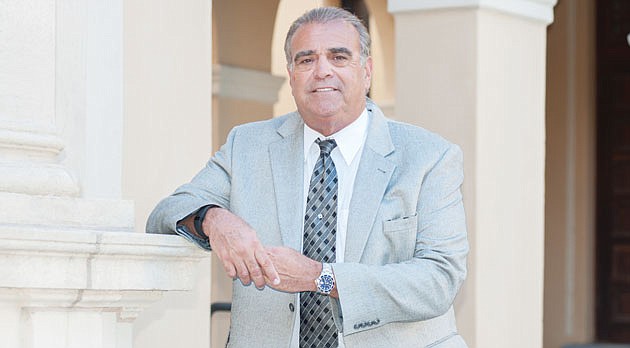- July 26, 2024
-
-
Loading

Loading

From Dunkin Donuts locations to Porsche engines to downtown Sarasota condos, Marvin Kaplan has done all kinds of deals and owned all sorts of entities in a four-decade life in business.
But nothing prepared Kaplan, 65, for the saga that engulfed his life the past five years. A summary includes: He lost at least $24 million in a Ponzi-like scheme; Regions Bank accused him of orchestrating a $10 million check-kiting scheme and assisting in the larger fraud; he had to sell off assets to pay $1.5 million in legal fees; and he was turned into a financial pariah in Sarasota, where he had done business for decades.
“I couldn't even open a checking account,” says Kaplan. “I was labeled.”
Turns out Kaplan, according to a federal judge in a decision handed down in late June, is innocent of check-kiting or other wrongdoing. The ruling — Kaplan's biggest vindication in the case to date — echoes what he's been saying for five years, mostly in court documents through his Naples attorney, Jon Parrish. Says Parrish: “He was guilty for five years before being proved innocent.”
Tampa-based U.S. District Court Judge Elizabeth Kovachevich heard the civil case, a bench trial in a lawsuit brought by Birmingham, Ala.-based Regions Bank against Kaplan in 2012. Kovachevich heard three weeks of testimony in the May trial. “There is no evidence that Marvin I. Kaplan had actual knowledge that the transactions were not legitimate,” Kovachevich wrote in her June 23 ruling.
The complicated case against Kaplan goes back to Gary Truman Smith and his son, Gary Todd Smith, principals behind a Fayetteville, N.C., advertising firm. The firm had an office in Sarasota, and had worked with several area tourism entities.
Kaplan met the Smiths in 2008 through a business contact. Kaplan, according to court documents, was told the Smiths' business was essentially a middleman or broker between printers and entities that sought printing services for their advertising needs. The Smiths asked Kaplan for short-term loans to fund those operations. In exchange, Kaplan was told he would get high-yield returns.
Kaplan, through several LLCs he controls, wired money from his Regions accounts, including $9.7 million in one day, to the Smiths. But checks from the Smiths to repay those wired funds, from Bridgeview Bank of Illinois, bounced, court records show.
When the checks bounced, Kaplan immediately thought the Smiths were responsible, so he reported the situation to authorities. Regions Bank, meanwhile, took a different view. It accused Kaplan of check kiting.
The Smiths, say federal prosecutors in another case, scammed Kaplan and other victims. The father-son duo, authorities say, falsified documents and bilked 150 investors out of at least $40 million. Gary Todd Smith, 47, pleaded guilty to fraud and related charges in early June. Fraud charges have been filed against Gary Truman Smith.
The next whammy to hit Kaplan came from Regions, when bank officials accused him of being part of scam — not a victim. The accusation came, says Kaplan's attorney, Parrish, in spite of Regions being aware that a U.S. Secret Service investigation of the case termed Kaplan a victim, not an alleged perpetrator.
“We believe that Regions Bank made a number of procedural failures in sending funds to the perpetrators of this Ponzi scheme and failing to safeguard its clients' money,” Parish says. “Instead of admitting an error, the bank decided to accuse Kaplan of criminal behavior.”
Regions Bank officials, through a spokesman, declined to comment.
Kaplan, not surprisingly, says the ordeal changed his life. He credits his wife, Katherine, for standing by him, and also several close friends. Normally sociable, Kaplan says he retreated to a near recluse for the past five years. He didn't want to go out to restaurants and be noticed in public. “It was grueling,” he says. “I didn't know if I was going to make it through. When something like this happens, it impacts every part of your life.”
Kaplan's biggest regret is a common one from victims of financial fraud: believing what was too good to be true. “When you are making money and everything is going good,” says Kaplan, “you don't look for problems.”
Going forward, Parrish, a partner with Parrish, White & Yarnell, says he's exploring options for suing Regions Bank for malicious prosecution and defamation. Kaplan says the latter option, holding the bank accountable for its actions, is a day he covets. Says Kaplan: “That's something I want more than anything.”